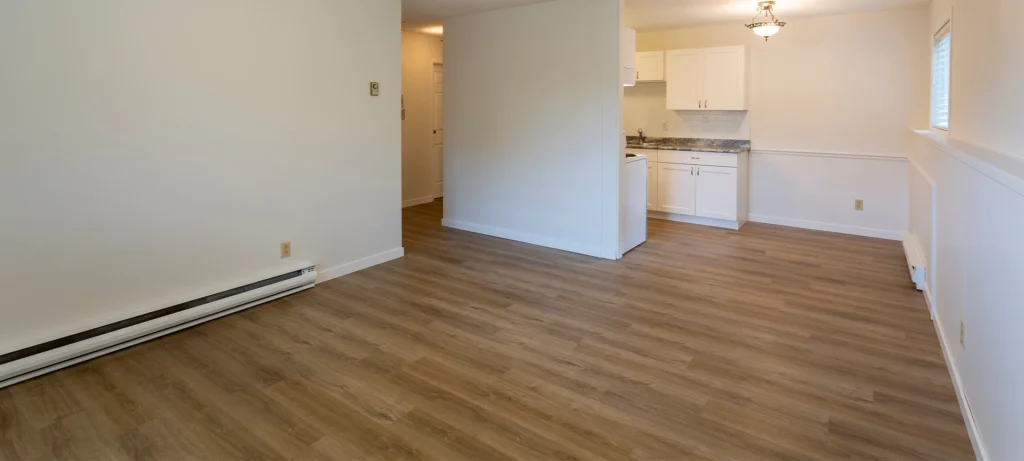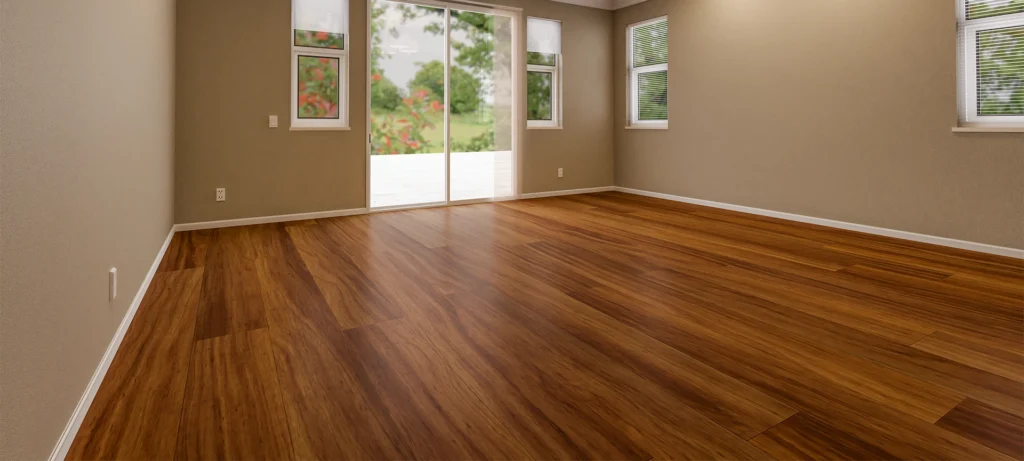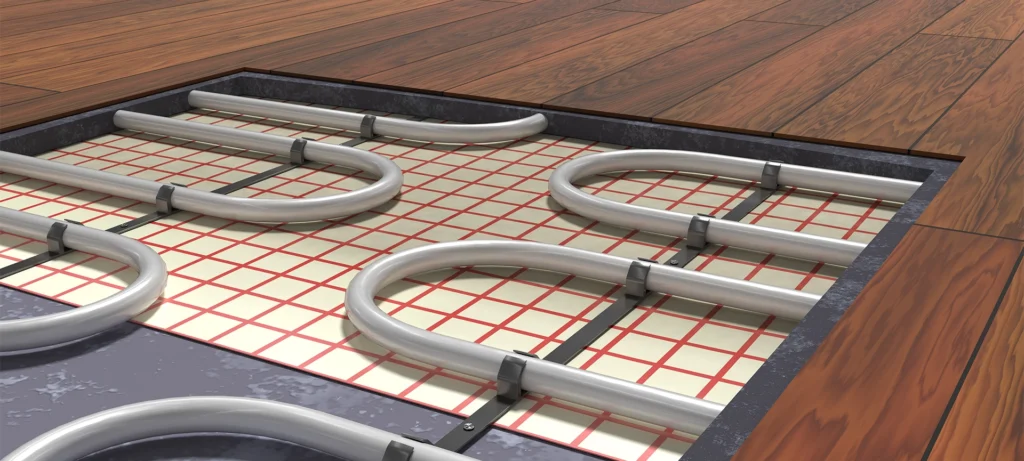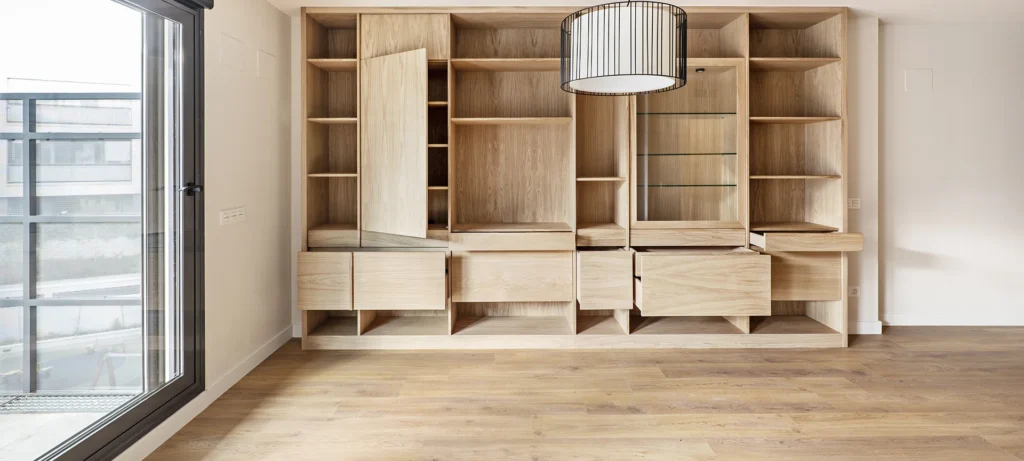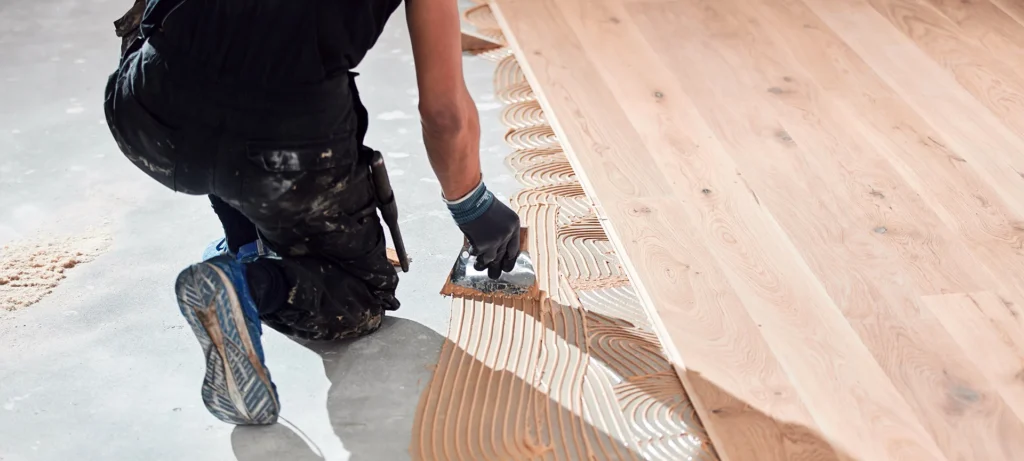Is It Better to Install Hardwood Floors in the Winter or Summer?
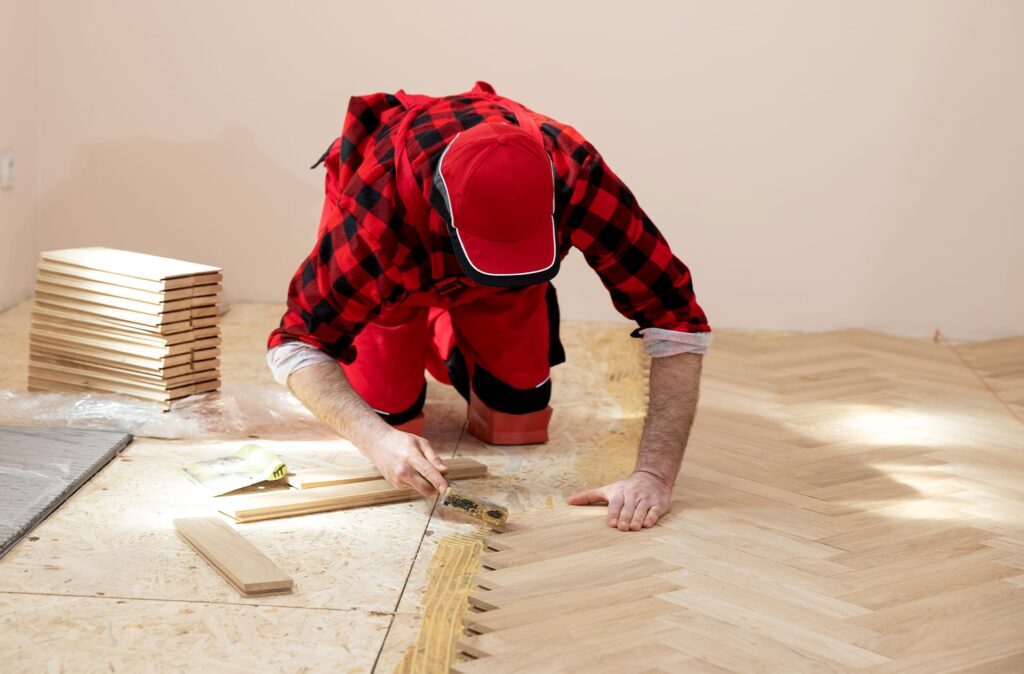
You’ve finally found it – the perfect hardwood flooring to transform your living space. The rich colour, the natural grain, the timeless elegance – it’s everything you’ve ever wanted. But now a new question arises: When is the best time to schedule the installation – winter or summer?
It might seem like a simple question, but the truth is that both seasons present unique advantages and challenges when it comes to hardwood flooring.
Whether you’re a DIY enthusiast or planning to hire professionals, understanding the nuances of working with hardwood in different seasons is crucial. At LV Flooring, we’ve helped countless homeowners in Toronto navigate these considerations, providing expert advice and quality installation services to ensure their flooring projects are a success, no matter the time of year.
Related Article: How to Layer Flooring: Combining Different Materials for a Unique Look
Hardwood Flooring and Seasonal Changes
Hardwood flooring, with its natural beauty and enduring appeal, is a popular choice for homeowners. Wood is a living material, constantly responding to changes in its environment. This responsiveness plays a key role when considering the timing of your flooring installation.
Wood’s Natural Movement
Wood is hygroscopic; it absorbs and releases moisture from the surrounding air. In drier conditions, wood releases moisture and contracts, while in humid conditions, it absorbs moisture and expands. This expansion and contraction primarily occur across the width of the boards, not the length.
Seasonal Effects
During Toronto’s dry winter months, the low humidity levels can cause hardwood flooring to lose moisture and shrink slightly. This can sometimes lead to visible gaps between the floorboards. Conversely, in the humid summer months, the higher moisture content in the air can cause the wood to expand, potentially leading to cupping or buckling if not properly managed.
Acclimation
To minimize these seasonal effects, it’s crucial to acclimate your hardwood flooring before installation. Acclimation involves allowing the wood to sit in the room where it will be installed for some time, typically several days to a week. This allows the wood to adjust to the temperature and humidity levels of its new environment, minimizing expansion or contraction after installation.
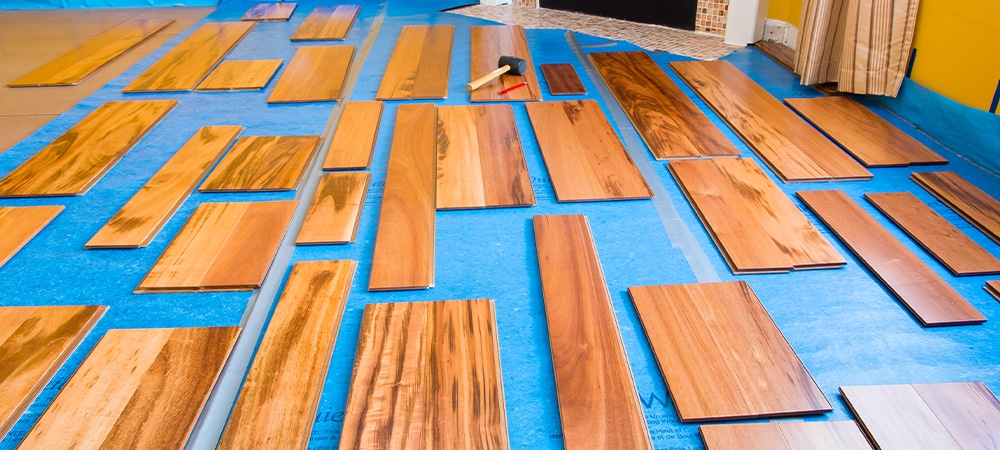
Winter Installation: Pros and Cons
While the chilly temperatures might make you think twice about a winter flooring project, there are some distinct advantages to installing hardwood floors during this season:
Pros:
- Potential Cost Savings: Contractors may offer more competitive pricing in the winter months due to lower demand. This could translate to significant savings on your overall project cost.
- Consistent Indoor Environment: With heating systems running, your home maintains a relatively consistent temperature in the winter. This stable environment can be beneficial for acclimating the wood and minimizing excessive expansion or contraction after installation.
- Easier Scheduling: Contractors often have more availability in the winter, making it easier to schedule your installation at a time that’s convenient for you. You might even be able to expedite the project timeline.
Cons:
- Dry Air Challenges: Winter’s dry air can cause the hardwood to dry out and shrink, potentially leading to gaps between floorboards if the wood isn’t properly acclimated beforehand.
- Weather-Related Delays: While less common in Toronto, severe winter weather like snowstorms could cause delays in material deliveries or disrupt the installation schedule.
Summer Installation: Pros and Cons
Summer in Toronto often seems like the ideal time for home renovations, and hardwood flooring installation is no exception. However, alongside the sunny skies and warm temperatures come some important considerations:
Pros:
- Minimized Gaps: Wood naturally expands in the summer humidity. This can be an advantage during installation, as the boards are less likely to shrink and leave noticeable gaps between them later on.
- Efficient Installation: Longer daylight hours in the summer can allow for more efficient installation, potentially speeding up the project timeline.
Cons:
- Humidity Challenges: Toronto summers can be quite humid. Excessive moisture in the air can cause hardwood flooring to expand significantly. If the wood isn’t properly acclimated to the environment before installation, this expansion can lead to problems like cupping or buckling after the floor is laid.
Related Article: What Should I Know About Installing Hardwood Floors in a Humid Climate?
- Higher Demand and Costs: Summer is often a peak season for home renovations, and flooring installers may be in high demand. This can lead to higher prices and scheduling challenges. You may need to book your installation well in advance to secure your preferred contractor and timeline.
Tips for Year-round Installation
No matter when you choose to install your hardwood flooring, following these tips will help ensure a successful and long-lasting result:
Acclimation is Key
Proper acclimation is crucial in any season. Allow the wood to adjust to your home’s environment for the recommended time (check the manufacturer’s guidelines) before installation. This minimizes the risk of excessive expansion or contraction after the flooring is in place.
Humidity Control
Maintaining consistent humidity levels in your home is essential for the long-term health of your hardwood floors. In winter, consider using a humidifier to add moisture to the air and prevent excessive shrinkage. In summer, a dehumidifier can help to reduce moisture levels and prevent excessive expansion.
Related Article: The Benefits of Underfloor Heating: How to Integrate It With Your Flooring
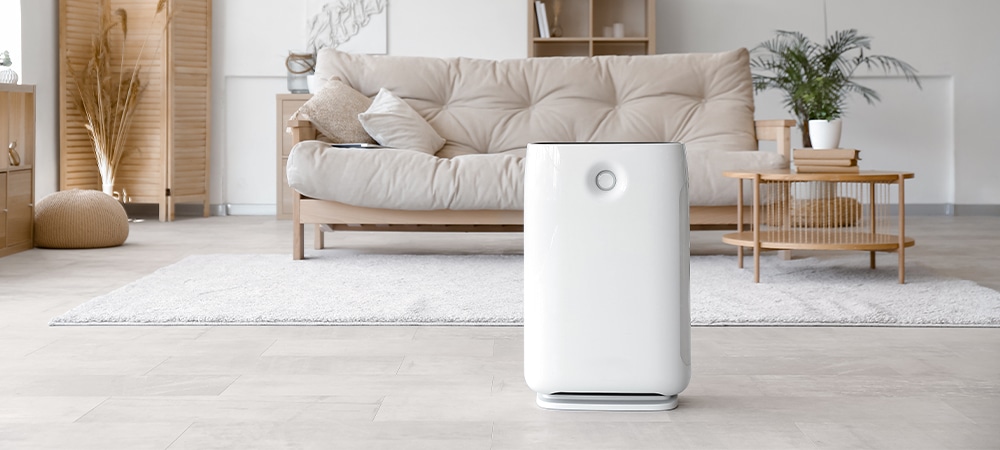
Professional Installation
While some homeowners may choose the DIY route, professional installation is often recommended, especially for hardwood flooring. Experienced installers like the team at LV Flooring understand the nuances of working with wood in different seasons. We have the knowledge and expertise to ensure proper acclimation, handle any seasonal challenges, and achieve a flawless installation that will stand the test of time.
Making the Choice: The Best Time for Your Hardwood Flooring Installation
When it comes to hardwood flooring installation, both winter and summer have their pros and cons. By understanding how seasonal changes affect wood and taking the necessary precautions, you can achieve a beautiful and long-lasting result any time of year. Remember the importance of acclimation, humidity control, and professional installation to ensure your flooring project is a success.
Need help determining the best time to install your new hardwood floors? Contact LV Flooring today. We can help you or give you expert advice and a personalized consultation. We make sure to guide you through the process and help you make the choices that are right for your home and lifestyle.

